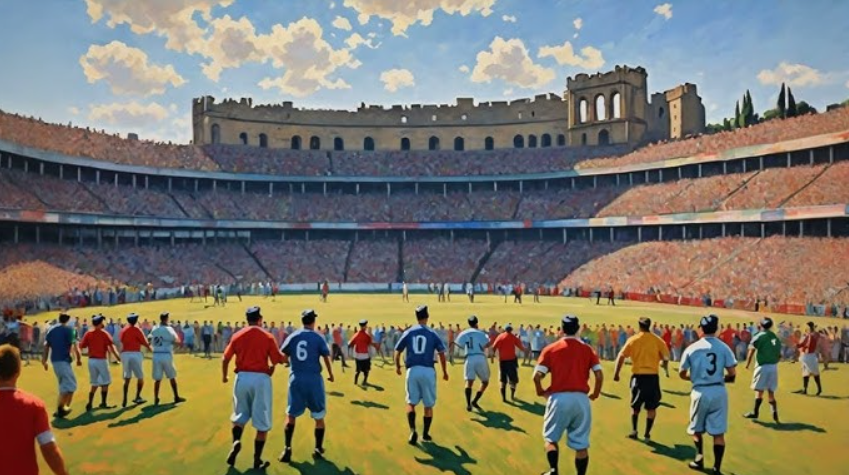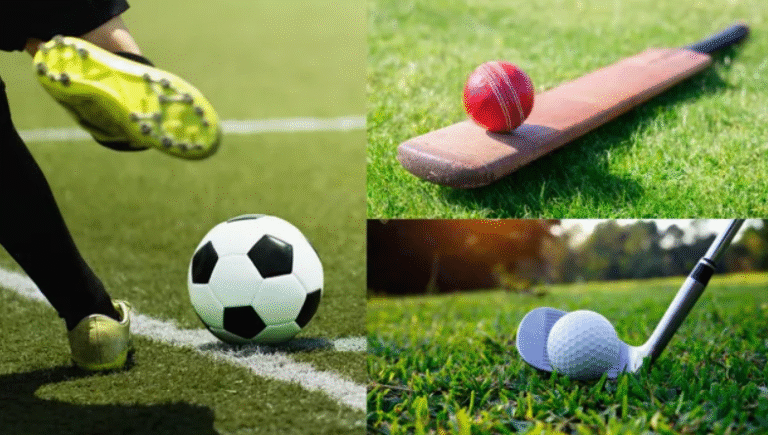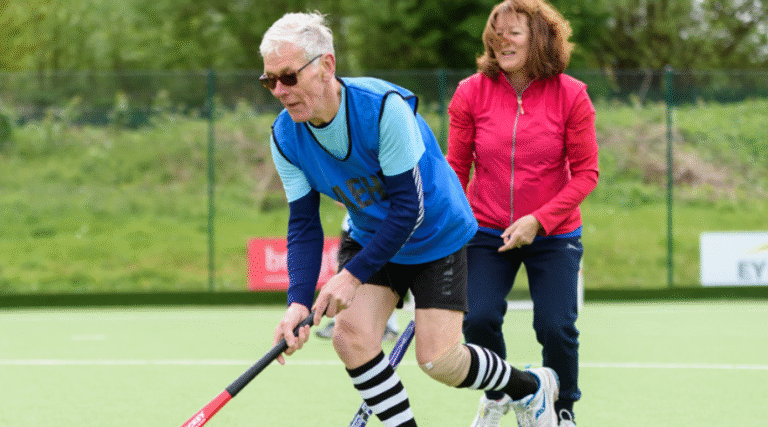Introduction: The Universal Language of Sports
Sports have been a vital part of human civilization for thousands of years. Across continents and cultures, sports unify people, creating bonds through competition, teamwork, and shared passion. This article journeys through the history of sports, illustrating how they evolved from primitive contests and rituals into the complex, global spectacles we witness today.
What Defines a Sport? Understanding Its Core Elements
At the heart of every sport lies competition, physical exertion, and a set of rules that govern fair play. Sports are organized physical activities intended to entertain, test skill, and improve physical fitness. From informal games to professional leagues, these core elements remain consistent.
See also: theirishmirror
The Origins of Sports: A Glimpse into Ancient Civilizations
Human beings have engaged in physical contests since prehistoric times. Early sports were closely tied to survival skills—hunting, fighting, and endurance—and often linked to religious ceremonies and social structures.
Ancient Egyptian Sports: Physicality and Rituals
The ancient Egyptians practiced wrestling, archery, and swimming, often as part of religious festivals. These sports celebrated physical strength and spiritual devotion, highlighting the connection between athleticism and divine favor.
The Athleticism of Ancient Mesopotamia
Mesopotamian societies introduced boxing, wrestling, and chariot racing. These early competitions were recorded on clay tablets, revealing a culture that valued physical skill alongside intellectual achievements.
Greek Influence: The Birth of Organized Athletics
Ancient Greece laid the foundation for modern sports. The Greeks formalized athletic competitions, making them a central part of education, religion, and civic pride.
The Olympic Games: A Cultural Phenomenon in Ancient Greece
The Olympic Games began in 776 BC, held every four years in Olympia. They celebrated human excellence and honored the gods through events like running, wrestling, discus, and chariot racing, creating a legacy that inspires the modern Olympics.
Roman Contributions: Gladiators and Public Spectacles
Rome transformed sports into grand entertainment with gladiator battles, chariot races, and public games held in colossal arenas. These events showcased power and politics, captivating audiences from all social classes.
Medieval Sports: From Feudal Tournaments to Folk Games
During the Middle Ages, knights engaged in jousting tournaments, while peasants enjoyed folk games such as mob football. Sports reflected social hierarchy but remained a crucial outlet for physical expression.
The Renaissance and the Rise of Codified Sports
The Renaissance period revived interest in physical education and laid the groundwork for the codification of many sports, emphasizing fairness, rules, and organized competition.
The Impact of Colonialism on the Spread of Sports Worldwide
European colonialism spread sports like cricket, rugby, and soccer globally. These games were integrated into local cultures, evolving uniquely in different regions while retaining their colonial roots.
The Industrial Revolution: Sports in the Age of Urbanization
Industrialization brought urban growth and leisure time, creating a demand for structured sports. Clubs and leagues formed, rules were standardized, and spectator sports flourished.
The Birth of Modern Sports: Standardization and Rules
The 19th century was pivotal, with sports adopting universal rules and governing bodies. Football (soccer), rugby, tennis, and others emerged in forms recognizable today.
The Role of Technology in Transforming Sports
From electronic timing to instant replay and wearable fitness trackers, technology revolutionized sports. It enhanced fairness, improved athlete training, and enriched fan experience worldwide.
Women in Sports: Breaking Barriers Through History
Women’s participation in sports has grown steadily despite historical exclusion. Trailblazers challenged social norms, leading to greater inclusion and recognition in all competitive arenas.
The Globalization of Sports: International Competitions and Events
Sports evolved into international phenomena with events like the FIFA World Cup and the Olympics, promoting global unity, cultural exchange, and fierce but friendly rivalries.
Iconic Modern Sports and Their Origins
Modern popular sports have diverse origins: soccer from English folk football, basketball from North America, and tennis from medieval handball. Their evolution reflects cultural shifts and innovation.
The Business of Sports: Commercialization and Media Influence
Sports became a multi-billion-dollar industry driven by television, sponsorships, merchandising, and digital media. This commercialization transformed athletes into celebrities and fans into consumers.
Sports Science and the Pursuit of Human Performance
Scientific advances in nutrition, biomechanics, and psychology push athletes to new performance heights. Sports science continuously refines training methods, injury prevention, and recovery techniques.
The Role of Sports in Social Change and Community Building
Sports have played critical roles in civil rights, gender equality, and social cohesion. They act as platforms for advocacy, breaking down barriers and uniting communities.
E-Sports: The New Frontier of Competitive Gaming
Electronic sports (e-sports) represent a modern evolution of competition, blending technology and gaming culture. They attract millions globally and are redefining what constitutes a “sport.”
Challenges Facing Modern Sports: Ethics, Doping, and Fair Play
Contemporary sports face ethical dilemmas such as performance-enhancing drugs, corruption, and match-fixing. Maintaining integrity remains essential for their future credibility.
The Future of Sports: Innovations and Trends to Watch
Emerging technologies like virtual reality, AI coaching, and sustainable stadiums promise to revolutionize sports further, enhancing participation and spectator engagement.
Why Sports Matter: Physical, Psychological, and Cultural Benefits
Sports improve physical health, foster teamwork, boost mental well-being, and strengthen cultural identity. They enrich individuals and societies alike.
Conclusion: The Enduring Legacy of Sports Across Time
From ancient contests to global arenas, sports have mirrored humanity’s quest for excellence, connection, and celebration. Their evolution is a testament to the enduring spirit of competition and community.
Frequently Asked Questions (FAQs)
Q1: When did the first recorded sports competitions occur?
The earliest recorded competitions date back to ancient Mesopotamia and Egypt, roughly around 3000 BCE.
Q2: What is considered the oldest organized sport?
The ancient Olympic Games, starting in 776 BC, are widely regarded as the oldest organized sports competitions.
Q3: How did the Industrial Revolution affect sports?
It spurred urbanization and leisure time, leading to the formation of clubs, leagues, and standardized rules, professionalizing many sports.
Q4: Why is the Olympic Games significant in sports history?
They symbolize the unification of sport, culture, and peace, fostering international competition and camaraderie.
Q5: How has technology changed modern sports?
Technology has improved training, officiating accuracy, athlete performance, and fan engagement through innovations like instant replay and wearable tech.
Q6: What role do women play in modern sports?
Women have increasingly gained access and recognition in competitive sports, breaking historical barriers and inspiring inclusivity.
Q7: What are e-sports and why are they important?
E-sports are competitive video gaming events growing into a global phenomenon, blending traditional competition with digital innovation.
Q8: What are some ethical challenges in sports today?
Doping, corruption, match-fixing, and inequality remain significant challenges needing ongoing regulation and oversight.


